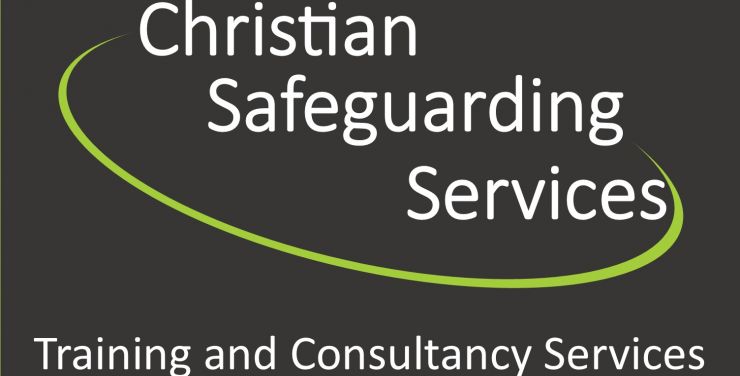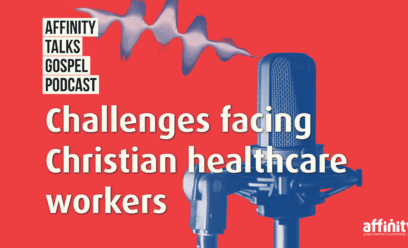Protecting the vulnerable in our churches

Paul and Sue Harrison are members at Grace Church, an FIEC church in Loughborough. They also work professionally to offer training in safeguarding children, young people and adults at risk. They have recognised the challenges for churches and church leaders around safeguarding, so have decided to do something about it.
Bringing together their decades of experience in the public and charity sectors with their local church leadership positions, they have now launched Safe in Church. It is a programme designed to help churches to understand and meet the requirements of safeguarding.
The programme sits under their specialist training and consultancy provider, Phasic Ltd, and is designed to help churches to avoid the pitfalls. Paul and Sue have agreed to tell us a bit more about it, and can provide training to other churches.
First of all, what does safeguarding actually mean?
Safeguarding is essentially about protecting people, both children and adults, from harm and abuse and promoting their wellbeing.
It is the responsibility of adults to keep children safe, but when it comes to safeguarding adults, we mean an adult who is at risk of abuse or neglect. For example, a learning disability can impede an adult’s ability to make an informed choice, thereby making them vulnerable.
Safeguarding is not just about spotting and addressing indicators of abuse; it is about looking at early signs and stepping in and this takes into account the evidence we see from outside the church’s four walls.
What is the current climate around safeguarding?
For a significant number of years there has been a shift which means organisations are essentially being told to ‘develop effective systems’. This, of course, can cause complications as it is less directive as to how to achieve this.
Added to this, historically, organisations have not dealt with cases of abuse and allegations of abuse effectively. Examples can be found in churches, youth camps and those working abroad on behalf of charities. These things have shifted a perception of churches because we have not been whiter than white.
There is also greater awareness among the public about where the risks are and the expectation that churches should be responding. But if you don’t know how to respond effectively, you can’t. That is where we come in; we are approaching safeguarding from a biblical perspective.
Tell us about Safe in Church?
Safe in Church is all about taking hold of our specialist knowledge and taking it to churches.
As evangelical Christians, who have assumed, and still hold, leadership positions in an FIEC church, we approach safeguarding as an outworking of our faith. We see safeguarding as a natural extension of our biblical principles and the gospel. We know that adhering to biblical principles will enable us to far exceed the legal requirements. Therefore, we do not separate the two, as we know that is not an accurate way to view it.
Many churches do not have expertise in safeguarding, so we established Safe in Church to help churches reach and exceed the necessary competency. We want to help churches to fully understand what is required and to be able to confidently and competently fulfil their duties and engage with statutory safeguarding services where that is required.
Why is it worthwhile to seek expert help?
There is a lot of information available and some churches have specialist knowledge within the membership. Our aim is to support churches who do not have that specialist knowledge. The available guidance can be quite difficult to apply into the church context and it can be difficult to keep up with the speed of change. Also, churches may miss some of the subtle nuances unless they have a specialist in their ranks.
We have more than thirty years’ experience in church ourselves – a number of them in leadership positions, so we understand the complexities. For example, we know how to deal with very specific situations, such as integrating an ex-offender into church life, and working through the practical solutions for the sake of the gospel.
Why should churches take safeguarding seriously?
Our biblical principles demand that we take it seriously: we are called to care for the vulnerable and weak.
One wrong move, if handled incorrectly, can bring a church – or worse, the gospel – into disrepute. So, let’s ‘do’ safeguarding well and transparently.
FOR MORE INFORMATION
A half-day training course for up to 25 people with Safe in Church costs £250. How about partnering with other churches near you to put on a morning of safeguarding training? Paul and Sue are also running safeguarding training up and down the country and this can be booked on a “per seat” basis.
For more information or if you would be willing to host regional training in your church, please contact Paul and Sue. Visit www.safeinchurch.org.uk or email paul@safeinchurch.org.uk or call 07960 751778.
The original interview was conducted by the Evangelical Alliance and first appeared in the July-August 2018 edition of idea, its members’ magazine. Please visit www.eauk.org/news-and-views/how-healthy-is-your-church-or-charity for the original the article.
Stay connected with our monthly update
Sign up to receive the latest news from Affinity and our members, delivered straight to your inbox once a month.



